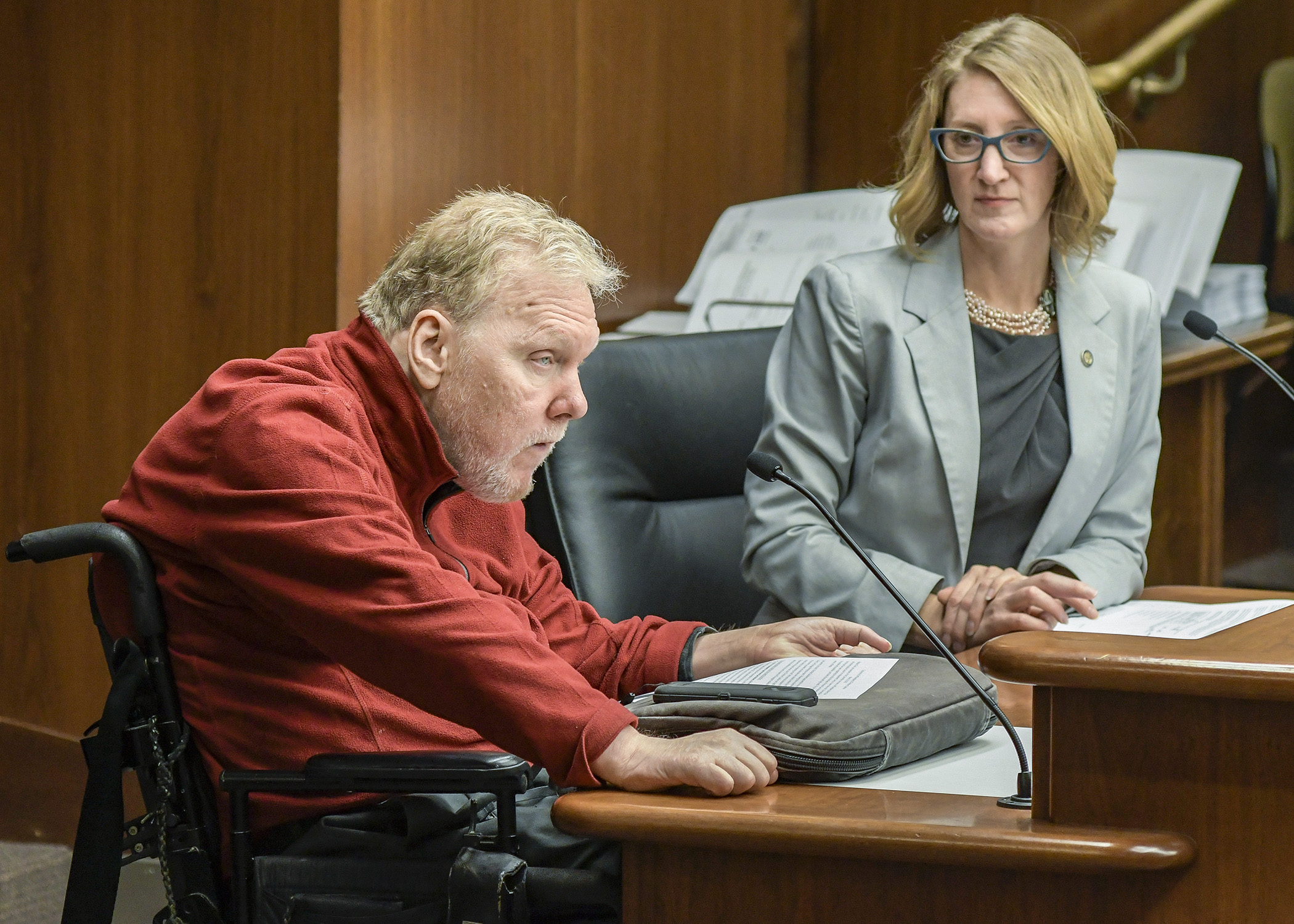The way PCAs are paid could be changed to improve wages

Personal care assistants help people who are elderly or have a disability remain in their homes, with their families, and out of high-cost institutional settings. The work is difficult, but can also be very rewarding, and makes a big difference in the lives of other people.
But low Medical Assistance reimbursement rates mean that few PCAs can afford to remain in the field, and the state’s rate-setting system stymies community attempts to deal with changes in the economy, said Rep. Jennifer Schultz (DFL-Duluth).
She sponsors HF1225, which would establish a new payment methodology for the Medical Assistance Personal Care Assistance program that would increase PCA wages and keep better pace with the economy.
The House Long-Term Care Division held the bill over as amended for possible inclusion in the division report. A companion, SF968, is sponsored by Sen. Jerry Relph (R-St. Cloud) and awaits action by the Senate Human Services Reform Finance and Policy Committee.
“PCA services are reimbursed at a historical rate, established years ago,” and increase or decrease based on the state’s finances. Those rates are now so low that it’s hard to recruit or keep PCAs, Schultz said.
This is especially dangerous in a field where continuity is vital to understand the needs of clients, provide comfort and security, and to detect health risks before they develop into emergencies, said Dena Belisle, president of the Minnesota First Provider Alliance.
“There is nothing more frustrating than having to tell a client that we cannot help them,” she said. “We can’t afford to wait any longer. Clients’ health and safety is at risk.”
The bill would create a more “responsive” program to recognize the actual cost of PCA services, set rates using Minnesota-specific data from the Bureau of Labor Statistics, and incorporate a competitive workforce factor.
The changes would go into effect January 2020, or upon federal approval, and the data would be updated every two years, so the rates could keep pace with industry changes.
The Medical Assistance PCA program does not fall under the Disability Wavier Rate System, so reforms made in that area have not expanded to apply to all people working as PCAs, said Jeff Bangsberg, chair of the Metropolitan Center for Independent Living.
Schultz said HF1225 would provide more consistency between the programs.
Because of technical amendments that are still underway, an exact cost for this change is still unavailable, said Doug Berg from the nonpartisan House Fiscal Analysis Department.
Related Articles
Search Session Daily
Advanced Search OptionsPriority Dailies
Minnesota's budget outlook worsens in both near, long term
By Rob Hubbard It looks as if those calling for less state spending could get their wish, judging from Thursday’s release of the February 2025 Budget and Economic Forecast.
A state su...
It looks as if those calling for less state spending could get their wish, judging from Thursday’s release of the February 2025 Budget and Economic Forecast.
A state su...
Minnesota’s projected budget surplus balloons to $3.7 billion, but fiscal pressure still looms
By Rob Hubbard Just as Minnesota has experienced a warmer winter than usual, so has the state’s budget outlook warmed over the past few months.
On Thursday, Minnesota Management and Budget...
Just as Minnesota has experienced a warmer winter than usual, so has the state’s budget outlook warmed over the past few months.
On Thursday, Minnesota Management and Budget...